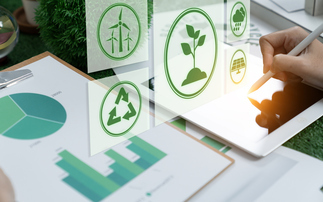Countries should not create an 'artificial horse race' between climate change and economic growth, says eminent economist
Tackling climate change does not mean sacrificing economic growth, former Treasury advisor Lord Stern has stressed once again in a speech this morning to leading diplomats.
To portray action on climate change and economic growth as competing alternatives is to "misunderstand economic development", the chair of the Grantham Research Institute on Climate Change at the London School of Economics said.
Speaking to ambassadors at an event organised by the French government ahead of COP21 later this year, Stern said since the last attempt at a global deal in Copenhagen, international understanding of the relationship between economic growth and climate responsibility has deepened - boosting the chance of successful deal in Paris.
"Our understanding has become more intense about the dangers of delay as we see the structure of the global economy changing, particularly in terms of cities, energy systems and land use, over the next two decades," he said.
Stern advised countries to focus on broadening their understanding that there is no "horse race" between economic growth and climate action, ahead of the Paris Summit in December. He also urged richer countries to support poorer countries in making the transition to low-carbon growth models by setting an example through their embrace of climate finance and low carbon technology, predicting this would help "provide the confidence that can underpin a ramping up of ambition".
For nearly 10 years Stern has set out the economic case for low-carbon growth. The Stern Review, released in 2006, was a landmark analysis into the economic cost of tackling climate change, and grabbed media headlines around the world for its conclusion tackling climate change would result in lower economic costs than a failure to act. He calculated the worst impacts of climate change could be avoided at a cost of just around one per cent of GDP.
In a paper published in July Stern reassessed his earlier findings, revising the cost of tackling climate change upwards to two per cent of GDP - the result of a decade of higher emissions and stricter guidelines over the amount of carbon we can safely burn. However, he said this figure would be much higher without the rapidly falling cost of clean energy and reiterated the economic costs of inaction would be significantly higher still.
Stern's latest remarks follow a report released last week from global bank Citigroup, which found that the cost of inaction was $1.8tr more than the cost of action, while a July report from the Economist Intelligence Unit found that climate change poses a potentially "catastrophic" risk to the global economy.
This article is part of the BusinessGreen Road to Paris Hub, hosted in association with PwC.










